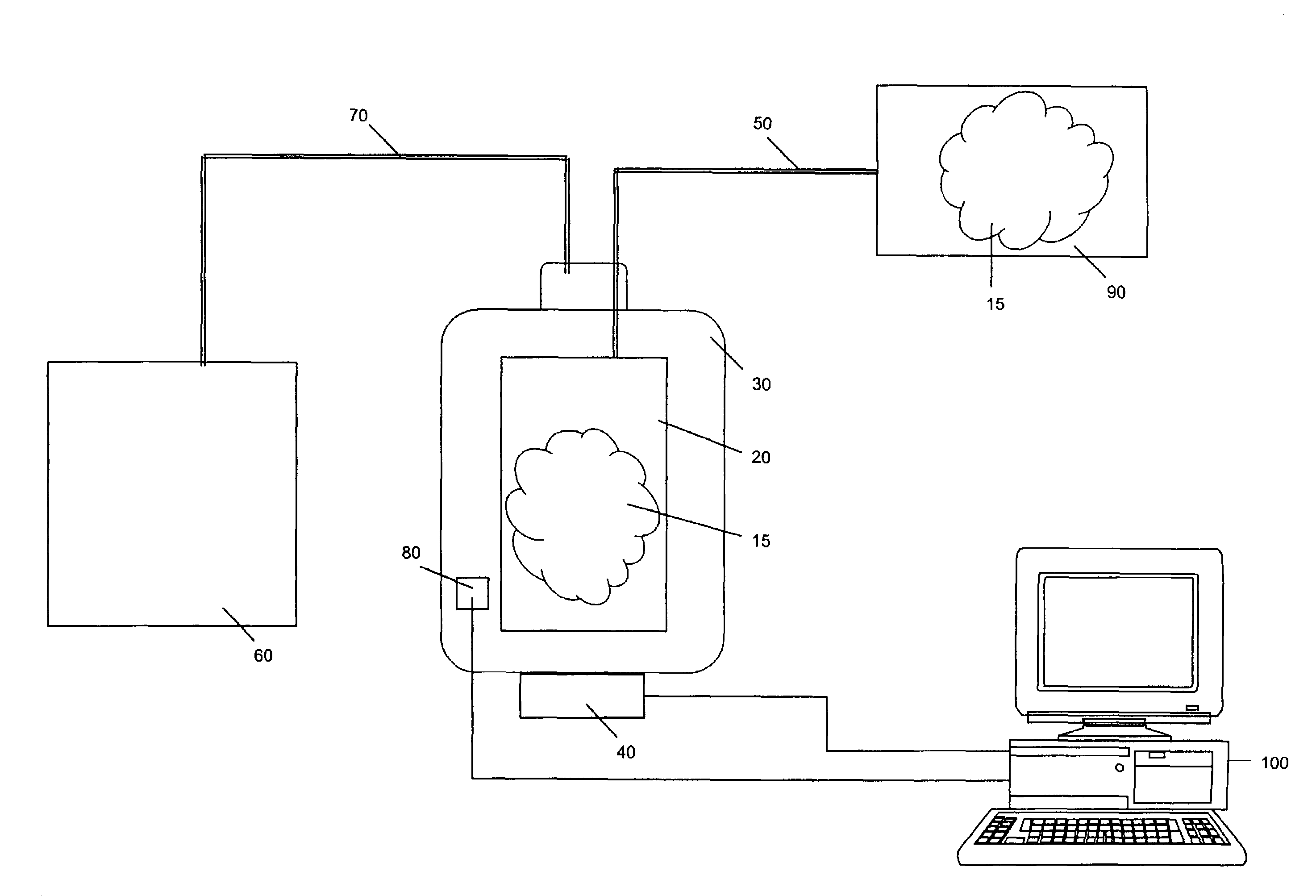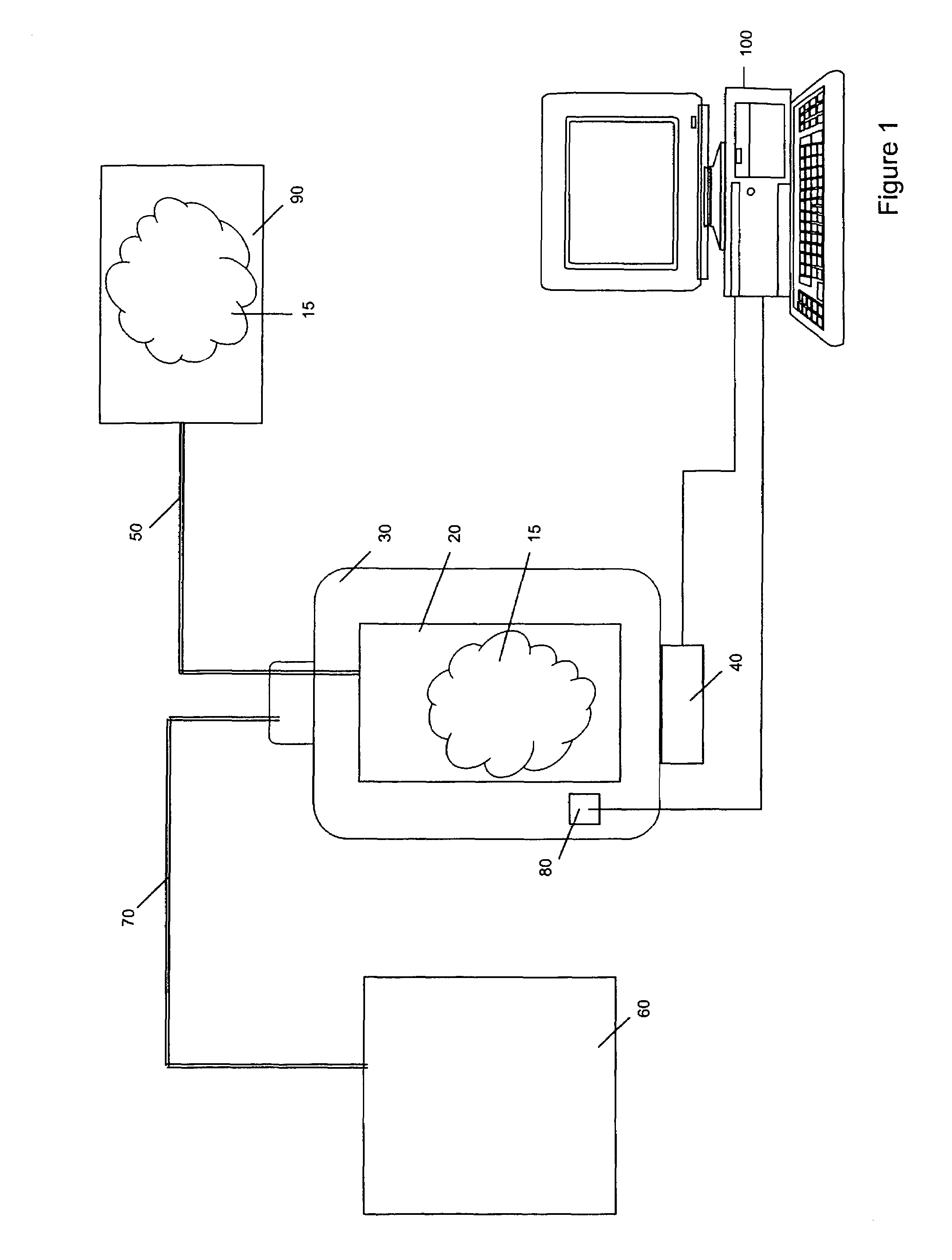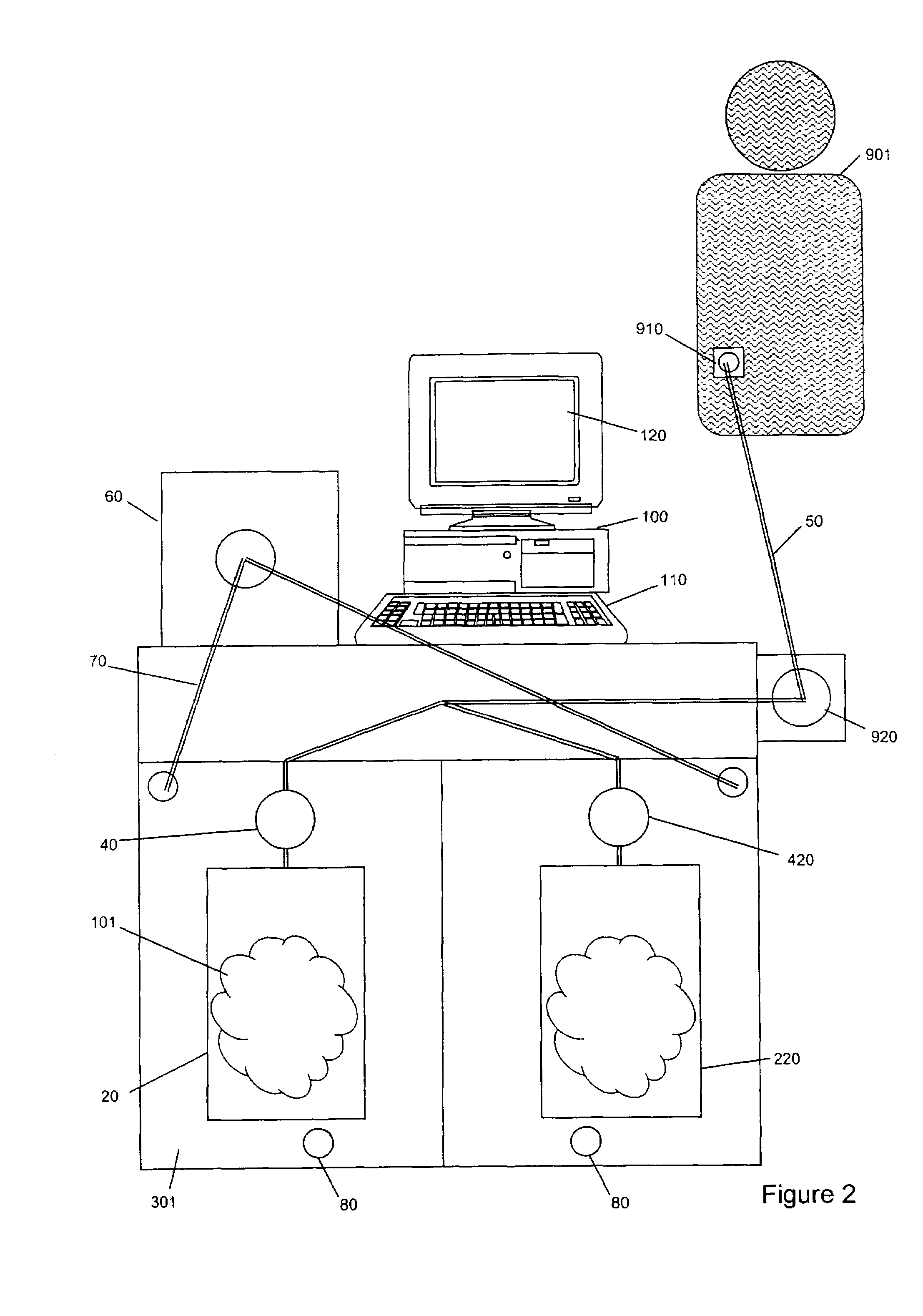Uninterrupted flow pump apparatus and method
a flow pump and flow-control technology, applied in the direction of machines/engines, other blood circulation devices, prostheses, etc., can solve the problems of biological fluids, biological fluids comprising blood or its cellular components, and pressure or flow sensitive fluids, so as to reduce total treatment or process time, reduce irradiation time, and increase flow rate
- Summary
- Abstract
- Description
- Claims
- Application Information
AI Technical Summary
Benefits of technology
Problems solved by technology
Method used
Image
Examples
Embodiment Construction
[0039]Reference will now be made in detail to the present preferred embodiments and exemplary embodiments of the invention, examples of which are illustrated in the accompanying drawings.
[0040]The present invention apparatus and method for pumping or delivering have a myriad of uses but are most advantageous for use when fluids, particularly biological fluids and pressure sensitive fluids, are pumped and / or when uninterrupted flow of the fluid is preferred. Such applications include biological and medical applications, for example, of photopheresis, cell separation, drug delivery and dialysis. This apparatus and method for pumping or delivering are also useful in providing for the movement of fluids in cyclical systems such as, for example, peritoneal dialysis, bypass and other blood flow processes. The present invention is also useful in other procedures involving the flow of fluids that are sensitive to changes in pressure and discontinuities in flow and has numerous applications ...
PUM
| Property | Measurement | Unit |
|---|---|---|
| pressure | aaaaa | aaaaa |
| pressure | aaaaa | aaaaa |
| pressure | aaaaa | aaaaa |
Abstract
Description
Claims
Application Information
 Login to View More
Login to View More - R&D
- Intellectual Property
- Life Sciences
- Materials
- Tech Scout
- Unparalleled Data Quality
- Higher Quality Content
- 60% Fewer Hallucinations
Browse by: Latest US Patents, China's latest patents, Technical Efficacy Thesaurus, Application Domain, Technology Topic, Popular Technical Reports.
© 2025 PatSnap. All rights reserved.Legal|Privacy policy|Modern Slavery Act Transparency Statement|Sitemap|About US| Contact US: help@patsnap.com



